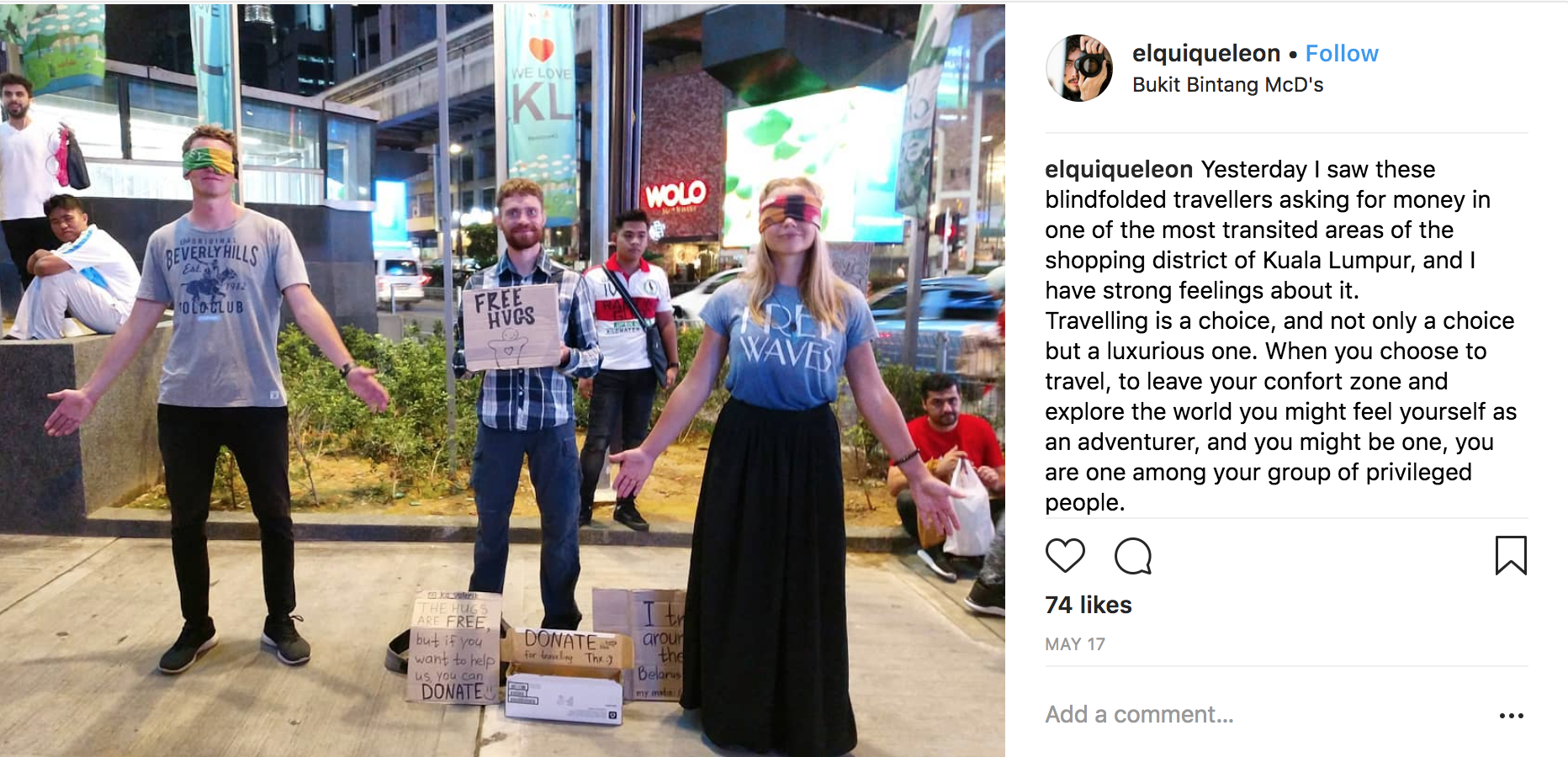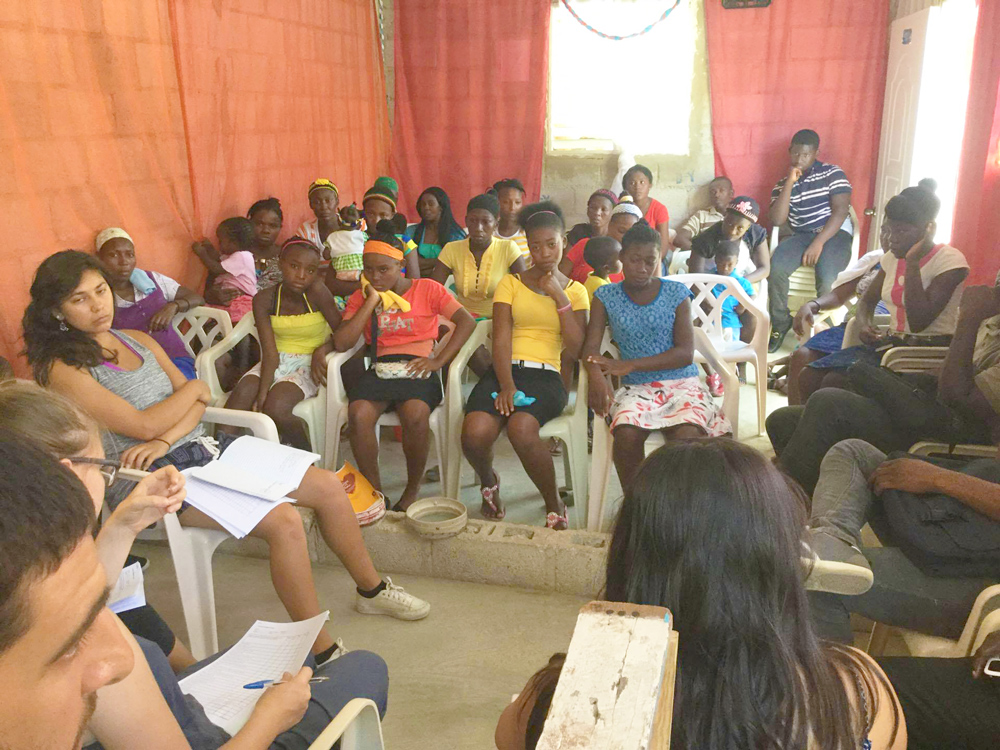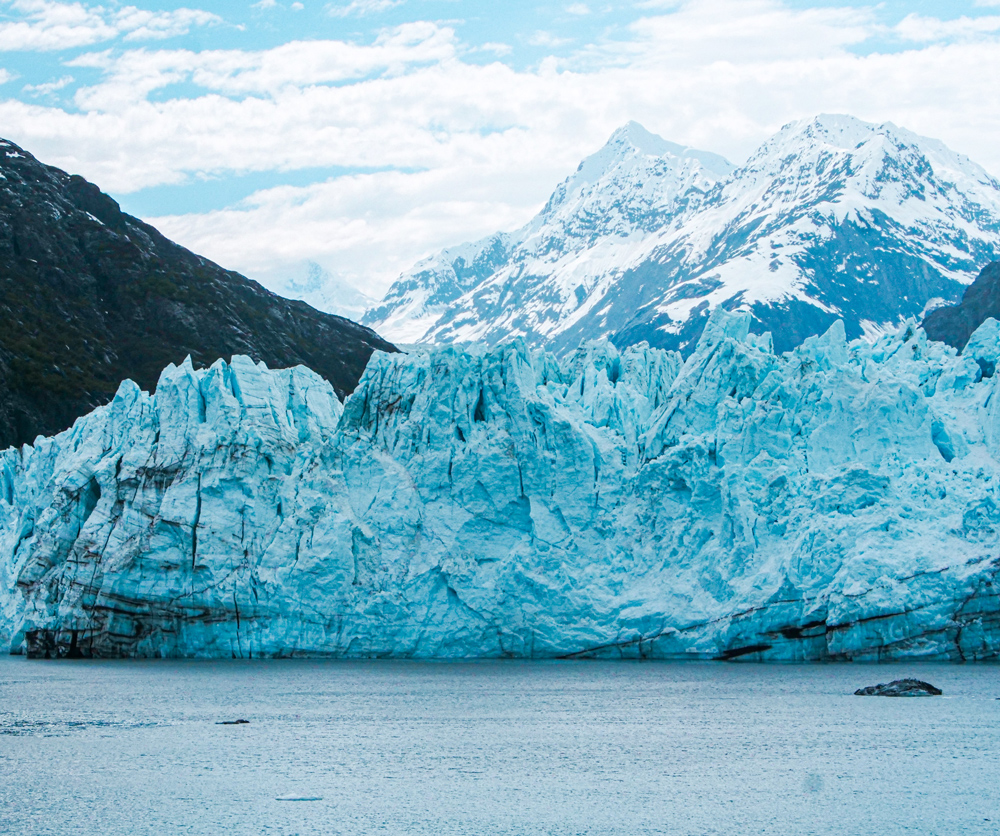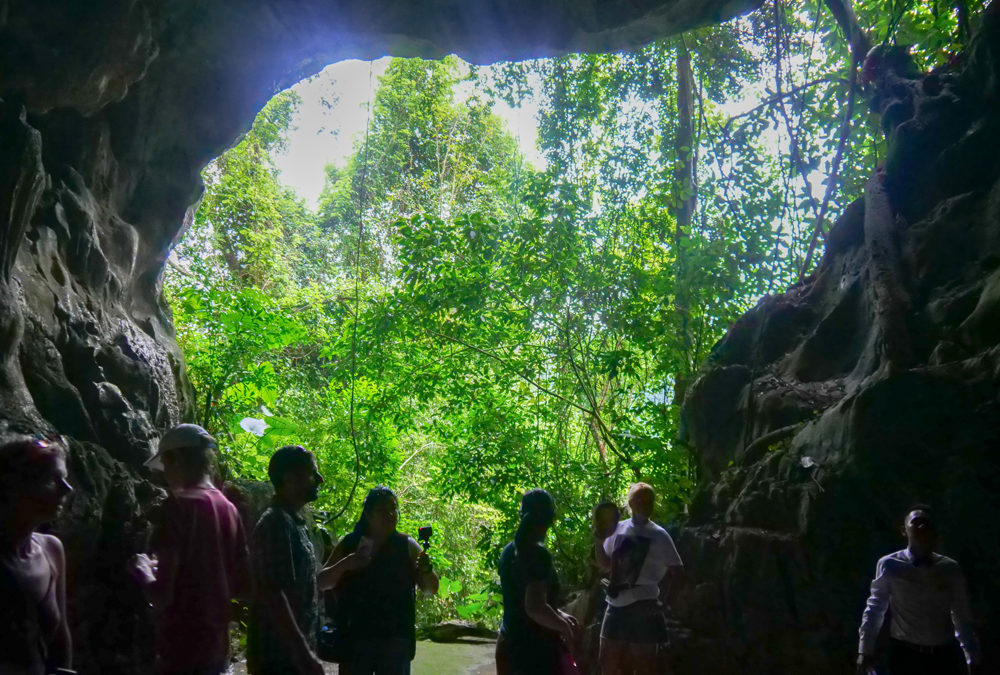It’s time to change our methods of travel.
I started this blog for a few reasons: to showcase the dynamic richness of many cultures, delve into sociological-based solutions for global issues, and publicize my misadventures to the whole world. As the world is learning to cope with the lingering presence of COVID-19, countries are reopening their borders and people are beginning to travel again. However, if there’s anything Coronavirus has taught us, it’s that the old way of doing things simply doesn’t cut it anymore, and I believe this mentality extends itself to the concept of traveling as well. It’s time to change the way we travel. Why?
Mainstream travel culture is deeply embedded in colonialism, namely travel to the Global South that either takes place as an exotic getaway, a backpacking adventure, voluntourism, or cruising.
What does this mean?
People of all shades and diasporas have moved across the globe in different ways for thousands of years. People migrated in tune with the seasons. People fled their homeland to escape war, violence, and genocide. People were captured and sent on ships to work as laborers in other lands for their captors as slavery. People have taken over others’ ancestral lands and claimed it as their own through indigenous genocide. Generations later, the effects of these movements are still seen today, but it’s important to note that this kind of movement, often done by Black and brown people, is not typically seen as “travel.”
Colonialism and imperialism are some of the most violent movements in global history. The Age of Exploration, a term coined by white historians, was a period of oppression, annihilation, and exploitation of people of color at the hands of white conquerors. Indigenous people were displaced to make room for their colonizers, and new systems were set up in order to benefit the colonizer. These systems include segregated towns, more access to resources such as education or clean water, and the general erasure of local culture in favor of the imperialist or colonizer’s culture. The indigenous people that were not displaced often had no choice but to work in service jobs that benefit their rulers. Even after many colonized nations declared their freedom, these systems of inequality lingered.
How does this affect modern-day travel & tourism?
Exotic Getaways
Today, many former spaces of colonizers are now considered must-see places, like South Africa’s slave-run wine country or the entire state of Hawai’i. These spaces are highly occupied by the later generations of colonizers and white Western tourists, served mostly by indigenous people. This is neocolonialism, the practice of using economics, globalization, cultural imperialism, and conditional aid to influence a developing country instead of the
previous colonial methods of direct military control or indirect political control. When you choose to only visit colonized spaces, you inherently, perhaps unknowingly, become part of this system. I have been personally guilty of this! Think of the #travelgoals you’ve seen on the internet, social media, and magazines. The majority of popular travel writers and bloggers are white Westerners who recommend places for other white Westerners, while writing about locals in a way that delegates the role of “Other.” Most tourists are from imperial countries because they get to self-actualize in countries that their settler ancestors exploited and oppressed. When their blogs aren’t warning you to stay away from “dangerous third-world countries,” they’re gushing about the “colonial wonderland” of certain cities, as in the wonderful colonial displacement of indigenous people. And although colonization is “officially” over (read: it’s not), the majority of travel options still cater to White tourists through accommodations and activities that continue a segregated discourse of Us and Them and label locals as “Other.” Furthermore, most people from predominantly White Western countries are able to book a ticket anywhere with no visa, while people from countries in the Global South have to go through the exhausting process of applying for visas, paying fees, and often getting rejected.
Backpacking Adventures
Let’s say you’re fine with nothing but a backpack, and you wanted to see the real, authentic version of a country. More Westerners flock to the Global South for travel as backpacking culture has become more mainstream. I myself had been attracted to visiting Southeast Asia in 2018 for its lure of living well for extended periods of time on relatively little money; in short, I was attracted by the economic inequality between my country and theirs. I didn’t realize it was a backpacker destination when I booked my trip; all I knew was that I had gone through a bad breakup, and my friend’s invitation to join her in Vietnam was a convenient excuse to get away and recenter myself.
I was doing exactly what Haunani-Kay Trask said of Hawai’i, where “Tourists flock to my Native land for escape, but they are escaping into a state of mind while participating in the destruction of a host people in a Native place.” And while destruction may initially seem too heavy of a word, it’s rather accurate. I was shocked to meet a British girl with a poverty fantasy of getting lost in a storm and sheltering “in a Vietnamese farm sleeping next to a goat!” I was disgusted to encounter a pair of Canadians who gloated how they drunkenly tore off the roof of a Laotian driver’s tuk-tuk, then fled into the night. I was irritated to see a German girl set up her guitar and a donations basket at the entrance to a Laotian night market, taking money that could have better impacted the elderly man playing his saw amongst the market stalls. The vast majority of backpackers I met had zero disregard for local people and their lives, and saw them as background pieces to their exotic jungle adventure. Furthermore, I often encountered Backpacker-targeted businesses that were started and managed by Westerners, further advancing neo imperialism. While I find joy in living with less possessions and saving money wherever I can, I hated that I had become part of this unsettling “Backpacker trail.”

I saw begpackers like these on four separate occasions in Vietnam & Laos.
Voluntourism
Perhaps your history of travel has sought to contribute to “the greater good” of the world, whether you participate in volunteer work “Voluntourism,” eco-travel, sustainable/ethical travel or spiritual tourist culture. I myself am guilty of mainly using these modes to travel, volunteering or working under both American-based and localized NGOs. The Global South is visited by these tourists, whether Christian missionaries “save souls” from West African-based Vodou in Haiti, yogis visit the island of Bali chasing a Eat, Pray, Love spiritual journey, or groups of high schoolers love on orphans for a week in Cambodia.
Unfortunately, a lack of regulation results in the misuse of money and resources, and we must question, “Who is actually benefiting from these trips?” Much of this tourism is rooted in the White Savior Complex, the feeling that White/Westerners must “save” poor, uncivilized, ignorant BIPOC. The benefits are more about tourists feeling good about themselves than aiding locals in an effective and sustainable manner. Massive secondhand clothing donations undermine a local textile economy, or a poorly managed school construction project sits empty without books and desks.
I went to the Dominican Republic in 2016 interning under an American-based NGO. After two weeks of “training,” it was still highly unclear how me and my co-interns were supposed to execute work for the benefit of these communities. Throughout our 8 weeks in-country, we were frustrated with the lack of support, organization, and funds, which was surprising considering the summer cost several thousand dollars for each of the 15 students, paid either through scholarship or out-of-pocket. Later, we found out our country’s director had been embezzling funds, and she was fired. Even though I had good intentions, I still took part in causing layers of harm by promising vulnerable communities a better future when the NGO could not follow through.

At this point in the internship, I knew the majority of the work we did was all a massive waste of everyone’s time, and I felt terrible for actively deceiving these communities.
Conscientious Cruising
A trend of “conscientious cruising” has also popped up, and as a former worker on one of these kinds of cruise lines, I can confirm that whatever good works the ship touts falls painfully short of negating the damage it does to the environment. For example, our ship’s trash room held all our trash bags, which we offloaded in a port city. Although our ship had separate containers for trash and recycling, we mixed it all anyway. In countries like Belize, we were legally prohibited from offloading trash bags that mixed food waste, but our guests didn’t know they couldn’t toss banana peels in their cabin trash bins, and the stewards definitely didn’t sift through the adult diapers to fish out tea bags. So our boat paid off port workers to take our illegal trash.

My job enabled me to see Alaskan glaciers while contributing to the climate change that shrinks them at a violently rapid pace!
Witnessing the general amount of waste that our 100-passenger, “eco-friendly” cruise ship generated on a daily basis (individually plastic-wrapped reusable water bottles, buckets of food waste & treated bilge water spewed into the ocean, CO2 emissions) left me feeling helplessly anxious about the state of the environment. I started overeating, partially out of the stress of the service job, partially out of my anxiety in not wanting to further contribute to such a wasteful industry. Cruises that don’t have “conscientious” attached to their branding do even more damage to the environment while exploiting their workers, and the damage of climate change unjustly impacts vulnerable people living mainly in the Global South.
This is all depressing. Should I just stay home?
Definitely not! I take full responsibility in being a traveler that has caused harm to a globe I claim to love, and I want to change. I am a big believer in experiential learning, exposing yourself to new perspectives and lifestyles, and learning something new from every culture and country. Travel culture heavily (and sometimes negatively) impacts the environment and economy of nearly anywhere you’re going to visit, and tourism, like any capitalistic project, requires consumption to generate a profit. I like to imagine a world where people think and act in ways that decolonize how we travel.
What’s decolonization?
The classic definition of decolonization is literally freeing one country from the control of another, and removing colonialist powers. But in this day and age, decolonizing travel requires constant questioning of our current systems. We must critically examine the tourism industry and its historical relationship to colonialism and imperialism, and ask how the industry affects everyone who takes part, from the tourists to the laborers who rely on the industry for work. It is not enough to simply showcase more BIPOC travelers who assimilate into the neocolonial modes of travel. Decolonizing travel is a process of becoming aware of oppressive power structures and then challenging them. It requires moving away from a Western lens of travel, granting space for a variety of diverse voices of both travelers and hosts! It’s about truly caring about the well being of the citizens of the world. It’s about granting hosts more power in how they would like visitors to engage with their culture. It’s about changing the strength of passports and visa requirements to grant more countries’ citizens access to travel. It’s about supporting a country when they request specific expertise. It’s about finding ways to mitigate climate change through environmental justice. While it sounds like a massive undertaking, there are small steps anyone can take.
More Power to the People? I like the sound of that!
Yes! Me too! The times are rapidly changing, and the internet has proven the extent of our connections with people across oceans. I am a firm believer that our current generation can utilize these connections to create a more just world in which more people are able to expand their perspectives through travel.
Stay tuned until next week, in which I’ll write about several things we can do now and later to begin the journey in working to decolonize travel.

Recent Comments